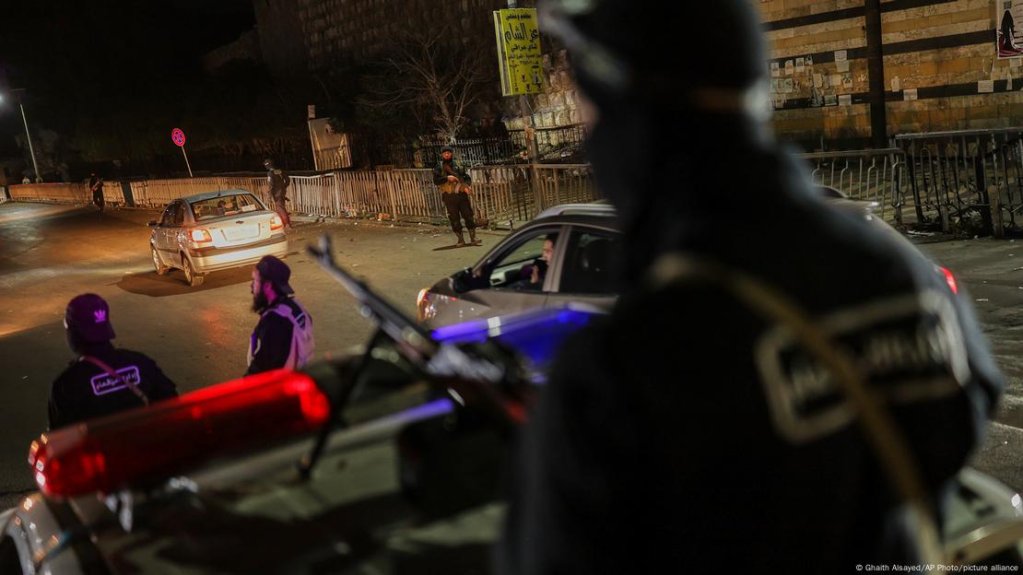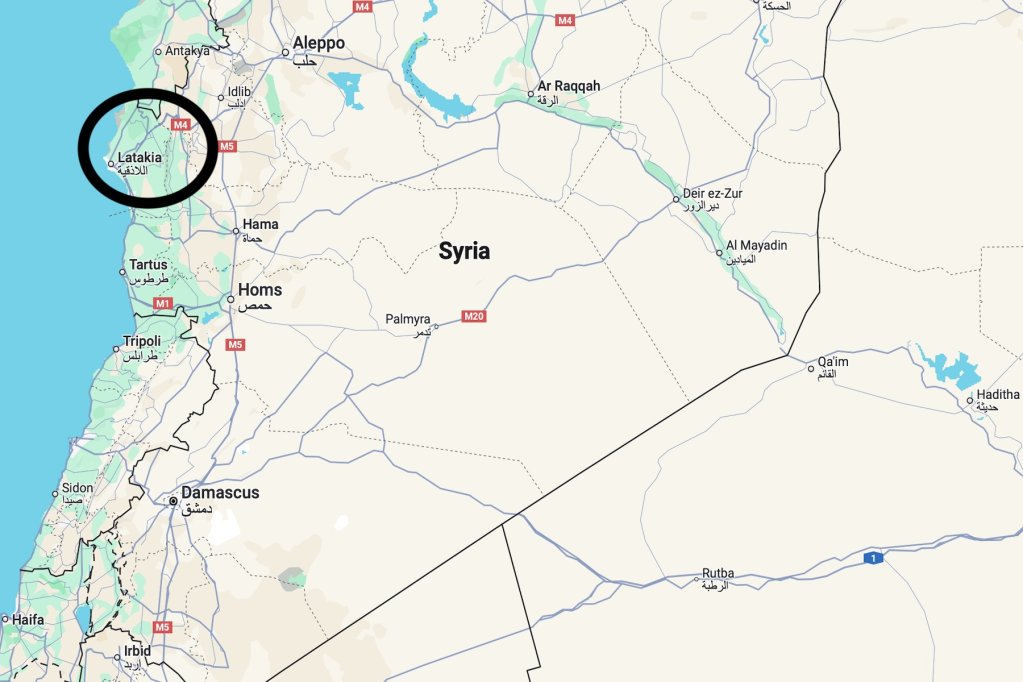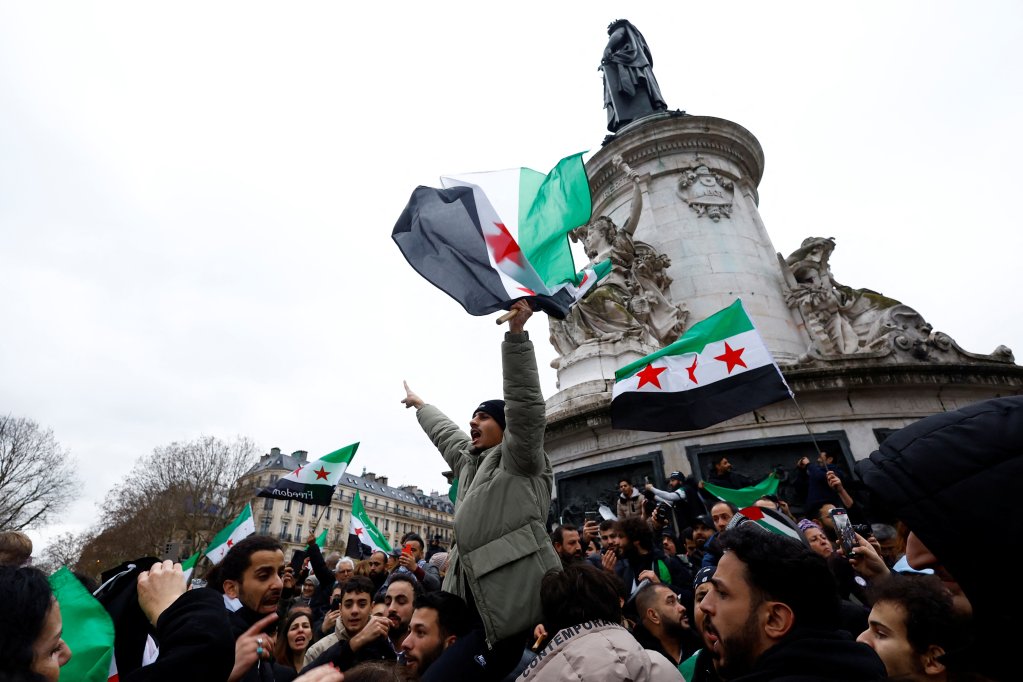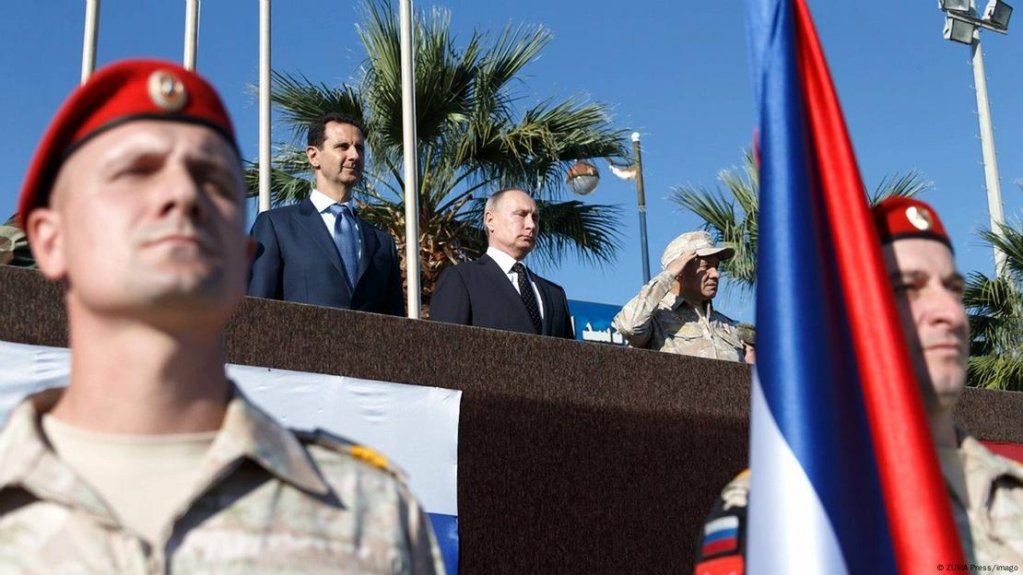The UNHCR announced that over 21,000 people have fled western Syria into Lebanon following violent clashes earlier in March. EU politicians meanwhile are trying to future-proof the stability of the region by paying a visit to neighboring Jordan, which houses over a million displaced people, asylum seekers and refugees.
The UN refugee agency published a report based on figures provided by the Lebanese Red Cross and Lebanese authorities, which says that there have been "21,637 new arrivals from Syria" in Lebanon in recent weeks amid "ongoing reports of insecurity hampering people's movements before they reach Lebanon."
Among those arriving in Lebanon, were also around 400 Lebanese nationals who had been living or staying in Syria.
The UNHCR report also said that there were famililes fleeing from Syria "continuing to cross unofficial border crossing points … on foot," who were seen to be arriving in Lebanon "exhausted, traumatised, hungry."

These reports come after a series of mass killings in and around the city of Latakia since March 6, mostly reportedly targeting the country's Alawite minority — a group to which former strongman Bashar al-Assad also belonged.
The killings are seen as the worst bloodshed in Syria since Assad was ousted in December last year. Under the terms of a deal, agreed in May 2024, the European Union agreed to fund Lebanon with a one billion euro aid package over three years, partly to take care of Syrian refugees and keep them from attempting to reach the EU.
At the time it was signed, the European Council on Refugees and Exiles (ECRE) called it a "migration management" deal. In analysis of the deal, published on May 10, 2024, ECRE wrote that some of the money was intended to help Lebanon prop up its economy and provide basic services to the population, around three-quarters of the funding was specifically earmarked for "assisting" Lebanon as a host country for Syrian refugees.
"We understand the challenges that Lebanon faces with hosting Syrian refugees and other displaced persons. It is vital to ensure the well-being of host communities and Syrian refugees," said European Commission President Ursula von der Leyen, on signing the deal.
Read AlsoAn uncertain future: Returning home to Syria or retaining refugee status?
Hundreds of Alawites reportedly killed
The Syrian Observatory for Human Rights (SOHR), which is a privately-run organization based in the UK, said that over 1,600 civilians had been killed, accusing official security forces and groups allied with the new interim governmen of "field executions, forced displacement and burning of homes."
SOHR highlighted that they believed that entire families had been killed in the attacks.
Syrian authorities meanwhile have accused Assad's supporters of starting the violence by attacking the country's new security forces. Military officers have been sent into the affected areas in response.

Syrian government inquest launched
Syria's interim president, Ahmad al-Sharaa, who led a group that overthrew Assad, pledged to prosecute people responsible for the "bloodshed of civilians," and set up a fact-finding committee in response to the ongoing situation.
The spokesman of the committee, Yasser al-Farhan, said that the committee had started gathering evidence about a week after the events in Latakia first started to take place, where local officials and security personnel were interviewed in addition to "hundreds of family members and witnesses."
"[M]ore than 95 testimonies" pertaining to the recent outbreak of violence have since already been gathered electronically — in addition to "more than 30 oral and written reports through direct communication channels," according to al-Farhan, who added that his committee was in contact with UN officials as well.
He added that since investigations were still ongoing, it was too early to provide further details or any preliminary results.
According to al-Farhan, however, the area around Latakia remains dangerous due to what he referred to as the presence of "outlaws implicated in crimes against humanity."

Government yet to examine allegations of war crimes
Many Syrians are still unsure about the future, as the interim government continues to focus on nation-building and recovering from 13 years of civil war, in which more than 350,000 are confirmed to have been killed.
Some estimates place the actual death toll at nearly twice that figure, such as SOHR.
Al-Farhan said that the crimes of the past will be fully addressed by the new leaders of the Middle Eastern nation, highlighting that Syrians expect "a special national court" to be convened to prosecute "those involved in war crimes and crimes against humanity."
"We are waiting for the adoption of a law on transitional justice in Syria," Farhan said in reference to prosecuting war crimes alleged to have been committed by the Assad regime both during the civil war from 2011 to 2024 and also prior to that.
Read AlsoSyrian refugee in Turkey says he is not ready to return
Longterm fate of Assad regime unclear
In December 2024, the Sunni Islamist group Hayat Tahrir al-Sham (known as HTS) managed to overthrow the Assad regime in an offensive that lasted less than two weeks. The country is now being led by the interim President al-Sharaa.
Assad and his family fled to Russia in response, where they have been staying at an undisclosed location ever since. It is believed that the family owns multiple luxury properties in the Russian capital, Moscow.
At this point, it is uncertain whether they will face justice relating to multiple allegations of crimes against mankind and humanity, as the Russian government under President Vladimir Putin appears to be protecting the former autocrat and his family.

German delegation hopes to help rebuild Syria and region
On Wednesday, (March 26) Germany's acting Interior Minister Nancy Faeser meanwhile arrived in the Middle East to discuss ongoing security challenges and changes in the geopolitical landscape of the region.
Faeser arrived in the Jordanian capital Amman alongside Austrian Interior Minister Gerhard Karner. The two were meeting with their Jordanian counterpart Mazin al-Farrayeh as well as meetings with Jordan's foreign minister, Ayman al-Safadi.
Jordan is estimated to be the host to roughly 1.3 million Syrian refugees, about half of whom are not officially registered there. That's according to official government estimates.
Migration and security issues are expected to be at the top of the agenda of the international leaders following a series of seismic events in the region which are threatening more instability and the potential for ever greater levels of displacement and migration.
Read AlsoSyrian returnees face 'desperate conditions', UN warns
German change of government
Germany appears to want to seek a greater role in the rebuilding of the Middle East, after outgoing German Foreign Minister Annalena Baerbock and Development Minister Svenja Schulze last week pledged 300 million euros in support of humanitarian aid projects to Syria after the fall of Assad.
The two senior politicians also signaled their willingness to help Syrian refugee populations as well as host communities in the region, including in Jordan, Lebanon, Iraq and Turkey.
With nearly 1.3 million Syrian war refugees living in Germany, the government hopes to create incentives for those willing to return to their homeland at the same time.
However, with the new German coalition government due to take over leadership within just weeks, there could yet be a change in direction, with presumed Chancellor-in-waiting Friedrich Merz also hoping to restructure Germany's expenses, allowing for a much greater focus on protecting Europe against foreign aggression, than perhaps the international development agenda of the outgoing government.
Read AlsoGermany: What does the future hold for migrants after announcement of new grand coalition?
with AFP, dpa
